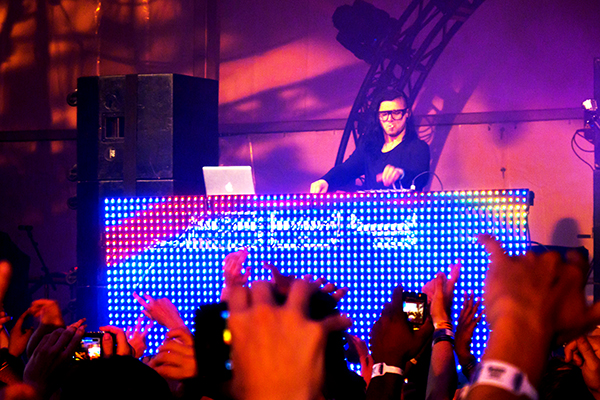Why Dubstep Isn’t Shit
Dubstep was a genre born in a very different age – the age of the Internet. Once the music was distorted from the minimal dub-heavy roots of Skream, Hijack, Benga and co into the energetic and warped thug of Rusko, and then disseminated out into the interwebs, the rules were abolished. Accessibility is a gift as well as a curse. New Zealanders could listen, and be part of, a movement started back in the Motherland. Quality control was removed – record labels were its gatekeepers, but they were easily and quickly circumnavigated as YouTube lovingly opened its arms. For the first time, a genre didn’t have any preconceptions of greatness. There was no canon of excellent music, no past precedent with which to judge the quality. Around the world, great dubstep was being heard and then drowned out by the oceans of filthy stinking crap. And so we learned to hate it.
That’s ok, you didn’t know any better. You heard that one song, it went wub wub and made screeching noises, and the bogans on your street loved it like they loved Megadeth (that’s a lie. No one likes Megadeth, not even Dave Mustaine). I can forgive you. While there are still innumerable “artists” making awful bedroom crap, it’s not like the early days anymore, I promise. Quality control has resumed, new labels have risen up, and even better, artists are making the best music that some styles have ever seen. There is now a canon for all flavours and tastes within the genre, from noise porn to blip-heavy brostep on Skism’s “Never Say Die”, skank, stoner, silly vibes on Flux Pavilion’s “Circus” records and the eclectic, hipster sounds of Skrillex’s own OWSLA. Amateurs are still posting to YouTube and spamming Twitter and Facebook, but now that there are accepted avenues of quality maybe dubstep can retrieve some of its deserved respect.
Nowadays, dubstep is almost as varied as a real genre. While it evolves and slowly regains its credibility, some artists have made smaller changes while also making big leaps for the genre. Benga, one of the “originals” from Croydon, was part of the first dubstep supergroup “Magnetic Man”, along with Skream and Artwork. He crossed over into the mainstream with “Perfect Stranger” and “I Need Air”, bringing atmospheric, melodic, and most importantly musical dubstep to the masses. Now he is taking another leap into the commercial world with “Pour Your Love”. An earworm of a song, it features the requirement for any charting electronic song at the moment, a soaring catchy female vocal, before sliding into Benga’s signature two-time beat and relaxed synths, forcing the listener to bounce up and down. Continuing vocals through entire songs has been a coup, moving the genre from drop-to-verse formats into the more accessible intro-verse-chorus of the traditional radio song.
Accessibility is key, but as dubstep has proved, it can also be a killer. Only six years later has dubstep finally begun to rebuild its respect, gain plaudits, and actually become musically respectable. Because there are a lot of us idiots, and when we are given the opportunity to add to culture like we could with dubstep, we will ruin it over and over, until the gates are put back in. Control is awful – but it’s necessarily awful.








